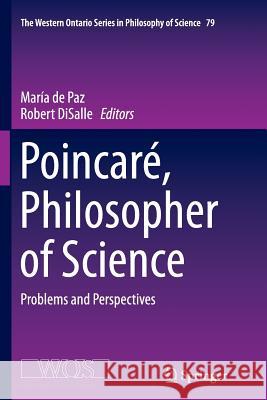Poincaré, Philosopher of Science: Problems and Perspectives » książka
topmenu
Poincaré, Philosopher of Science: Problems and Perspectives
ISBN-13: 9789402400021 / Angielski / Miękka / 2016 / 191 str.
Kategorie BISAC:
Wydawca:
Springer
Seria wydawnicza:
Język:
Angielski
ISBN-13:
9789402400021
Rok wydania:
2016
Wydanie:
Softcover Repri
Numer serii:
000248942
Ilość stron:
191
Waga:
0.30 kg
Wymiary:
23.39 x 15.6 x 1.12
Oprawa:
Miękka
Wolumenów:
01
Dodatkowe informacje:
Wydanie ilustrowane











